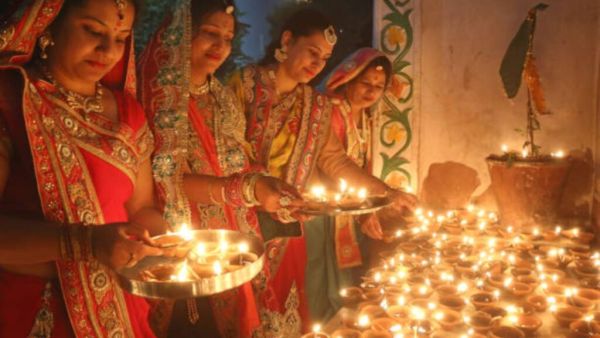
Happy Diwali 2025: Diwali is the biggest and most important festival in Hindu culture. On these days we meet our loved ones, spend time with them and also give them gifts. During Diwali, every home is lit up with attractive lights. Various cultural programs are also organized in this festival. Diwali has religious significance as well as social significance.
The religious significance of Diwali is the victory of truth over falsehood, such as Rama’s victory over Ravana, while the social significance is gathering, strengthening relationships and celebrating prosperity. Even the old traditions of Diwali are still alive today as they have been passed down from generation to generation, like lighting lamps, drawing rangoli and distributing sweets. Along with this, modern times have also adopted new traditions like buying new things and decorating houses in an attractive manner.
Make a melt-in-your-mouth instant pedha in 10 minutes for your beloved brother on the occasion of brother-in-law, note down the recipe
Victory of good over evil: According to Hindu mythology, Shri Rama returned to Ayodhya after defeating Ravana, the people of the place celebrated Diwali to celebrate this victory. Diwali started from here.
Significance in other religions too: In Jainism, Diwali is celebrated to commemorate the liberation of Lord Mahavira, while in Sikhism, Diwali commemorates the liberation of Guru Hargobind Singh.
Triumph of Light over Darkness: Celebrating the victory of light over darkness, knowledge over ignorance and hope over despair is an important symbol of Diwali.
Diwali is not just a festival of lights or bursting of crackers, but a symbol of community harmony, love and happiness. The social importance of this festival can be seen in different ways.
Black smoke from crackers spread throughout the body? These 5 home remedies will remove all the dirt-mucus stuck in the lungs
Harmony: Everyone from different communities come together during Diwali. There are meetings with relatives, friends and neighbors. This strengthens social bonds.
Spirit of Charity and Help: In many places, on the occasion of Diwali, help is given to the needy, old age homes or orphanages.
Gender Equality and Home Culture: Cleaning the house, decorating and flickering lights are all done together. It strengthens the sense of participation of all in household chores.
Lighting: It is still a practice to light a lamp in every house in the morning and evening in the Deoghar, which brings a sense of positivity and auspiciousness.
Rangoli Drawing: The practice of decorating the house by drawing beautiful rangoli in front of the house is popular even today.
Sharing Sweets: The old practice of making special food and sweets and distributing them to others is still going on in Diwali.
Abhyanga bath: It is a tradition to bathe with oil in the early morning on Naraka Chaturdashi. This cleanses the body and maintains health.
Making Snacks: A variety of traditional dishes such as chaklya, karanjaya, laddu, shev are made at home. It increases family harmony and happiness.
Celebrating Bhaubij: Diwali ends with Bhaubiji. On this day a sister waves to her brother and this beautiful bond of love between brother and sister is cherished every Diwali.